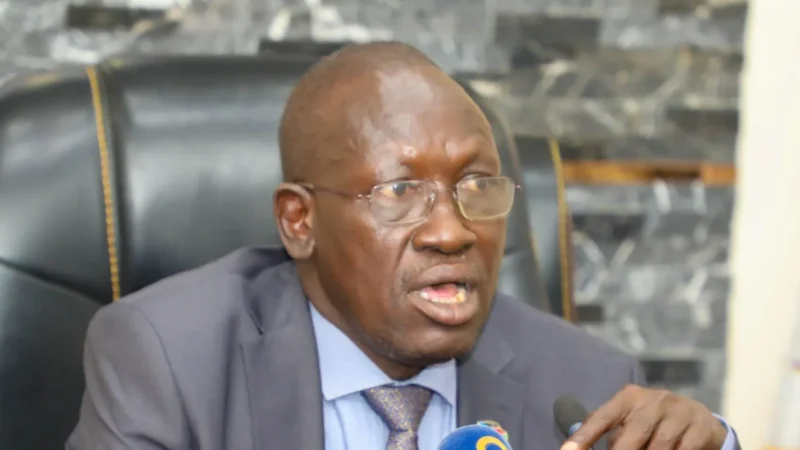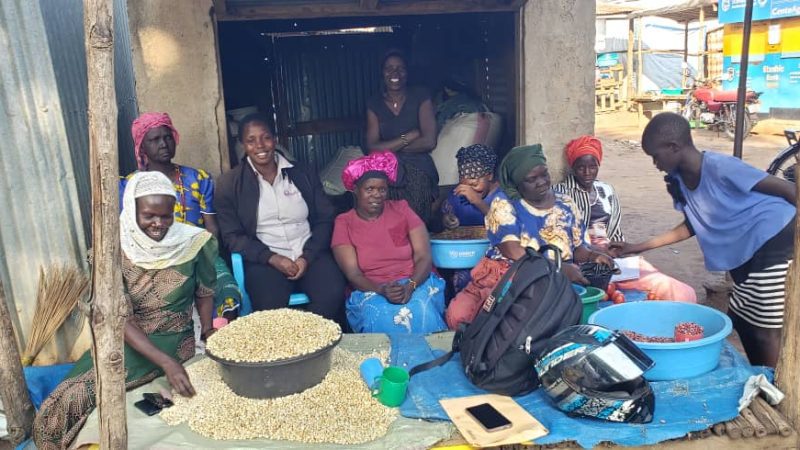Ugandans are rapidly embracing the ‘cashless’ trend that is reshaping the landscape of financial transactions in the country. The allure of going cashless not only offers convenience but also ensures a secure and seamless payment experience, freeing individuals from the burden of carrying physical currency. This transition has seamlessly integrated offline and online realms, allowing Ugandans to stream movies, order meals, and purchase groceries with unparalleled ease.
In response to this trend, Visa, in collaboration with the Uganda Bankers Association, introduced the Sasuza Visa initiative. This campaign aims to raise awareness and educate consumers about the myriad benefits of Visa card payments, emphasizing convenience and the absence of transaction fees. It represents a concerted effort to empower Ugandans to explore the possibilities of digital transactions while emphasizing the security and reliability of Visa cards.
However, as the adoption of card payments in Uganda gains pace with a 24.9% increase translating to 2.4 million users conducting transactions worth over UGX 500 billion in December 2023, security concerns must also take center stage. Upholding the integrity of card payments is paramount to maintaining the trust and credibility of digital transactions among Ugandans.
With this in mind, it is imperative to delve into strategies that empower Ugandans to keep their card payments secure. Let us explore six key practices that can safeguard the integrity of card transactions and uphold the confidence of consumers in Uganda’s evolving digital economy.
- Protect Your PIN
One should always safeguard their personal identification numbers (PINs) by prioritizing the use of non-obvious combinations and avoid easily guessable sequences by fraudsters. Furthermore, memorize your PINs rather than writing them down in one’s phone and refrain from sharing them with anyone, family members inclusive.
During transactions, you should also maintain awareness of their surroundings and ensure privacy during PIN entry to mitigate unauthorized access to their accounts by shielding the input of PINs from prying eyes or potential “shoulder surfers” who may attempt to take a peek at your details as you authorize a payment.
- Regularly Monitor Account Activity
You can utilize online banking platforms and mobile applications to regularly review recent transactions from your Visa card as well as account balances. This vigilance can help you promptly spot any suspicious activity or unauthorized transactions and withdrawals that could be made without your prior knowledge or approval.
- Avoid Public Wireless Access for Financial Transactions
While convenient, public Wi-Fi networks pose significant security risks when used for personal financial transactions. These networks are usually treasure troves for fraudsters looking to steal and exploit your personal card information amid increased adoption of digital channels for payment. On that note, you are advised to use personal and private secure networks that can reduce the likelihood of unauthorized access and data breaches while you are authorizing or completing card payments on your phone, tab or laptop.
- Look for the “s” in the “https”
You should always be vigilant and look out for internet security protocols while paying for items on the internet. Before inputting payment details on the check-out page of an e-commerce, streaming or any vendor website, it’s critical for you to verify the security of that website by checking for the presence of “https://” at the beginning of the URL and the appearance of a padlock icon in the browser’s address bar. These aspects signal a secure website and connection for your card transactions and reduce the risk of fraudulent activities
- Beware of phishing scams
Beware of unsolicited emails or calls seeking personal card information, a tactic often employed by cybercriminals and never used by legitimate financial institutions under the Uganda Bankers Association. When you receive any of these communications that usually elicit a sense of urgency, take a step back and check for misspellings or suspicious sender addresses. To clear any remaining doubts, contact the purposed sender or institution directly through verified channels to authenticate their requests.
Furthermore, you should exercise caution when interacting with unfamiliar communications and avoid downloading attachments from unknown sources that can contain trojan horses that can expose your personal information. One way to do this is through utilizing tools like Google Safe Browsing to verify the safety of links before engaging with them.
- Watch for Skimmers
When around ATMs or paying for your groceries, meals or fuel, be on the look-out for fraudsters who may have skimming devices stealthily installed on point-of-sale machines to capture card information from unsuspecting users. When presented with a point-of-sale machine, take time to check for any signs of tampering or suspicious wire attachments that may indicate the presence of a skimming device. In addition to always inspecting POS machines, review your bank statements and notifications (email and SMS) every after each transaction to check for potential double transactions that can also present as skimming attempts.
As Ugandans embraces the convenience and efficiency of cashless transactions, ensuring the security of card payments becomes paramount. By implementing the strategies outlined above—protecting PINs, monitoring account activity, avoiding public Wi-Fi for financial transactions, verifying website security, being cautious of phishing scams, and one-click services, and staying vigilant against skimmers—Ugandans can navigate the digital landscape with confidence and trust which remain vital to progressing the country’s journey to a cashless society.











